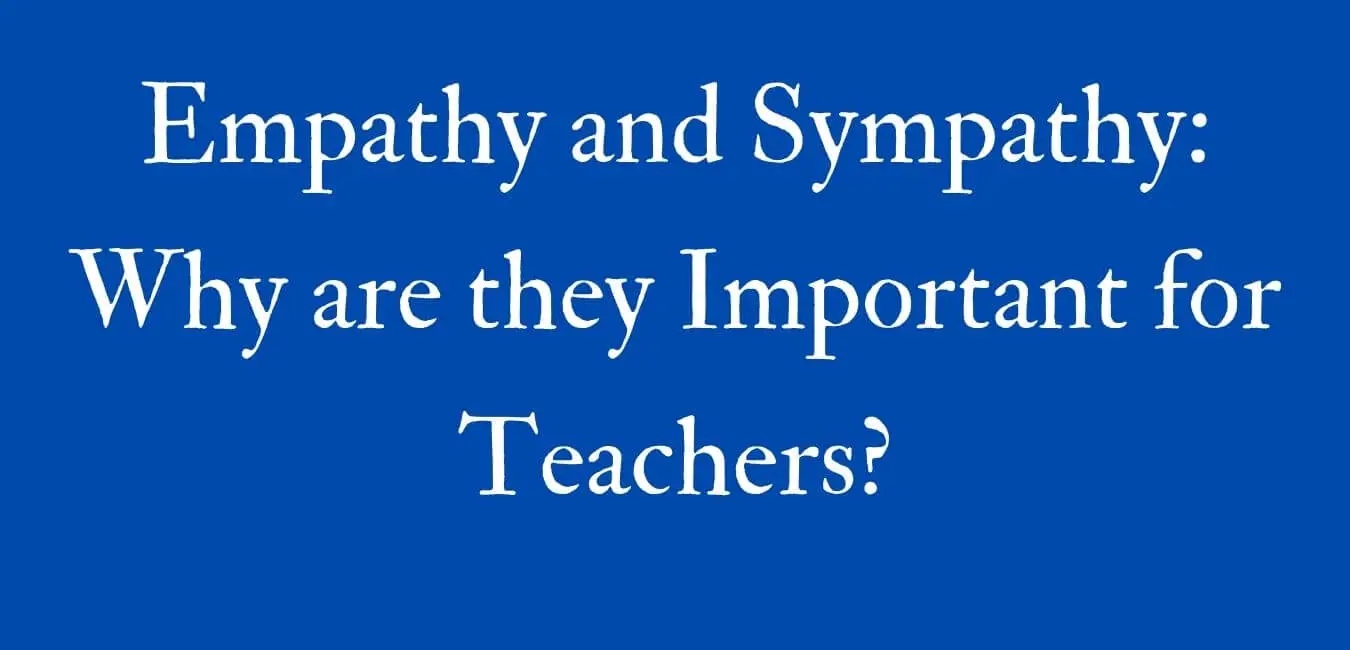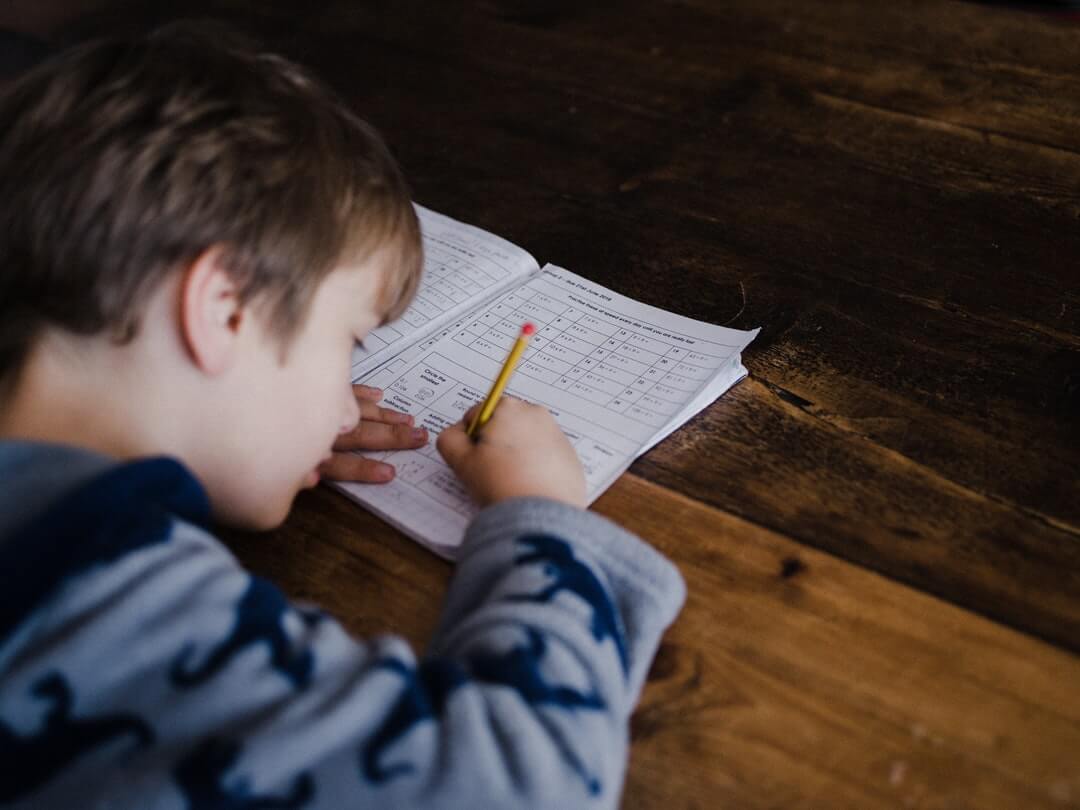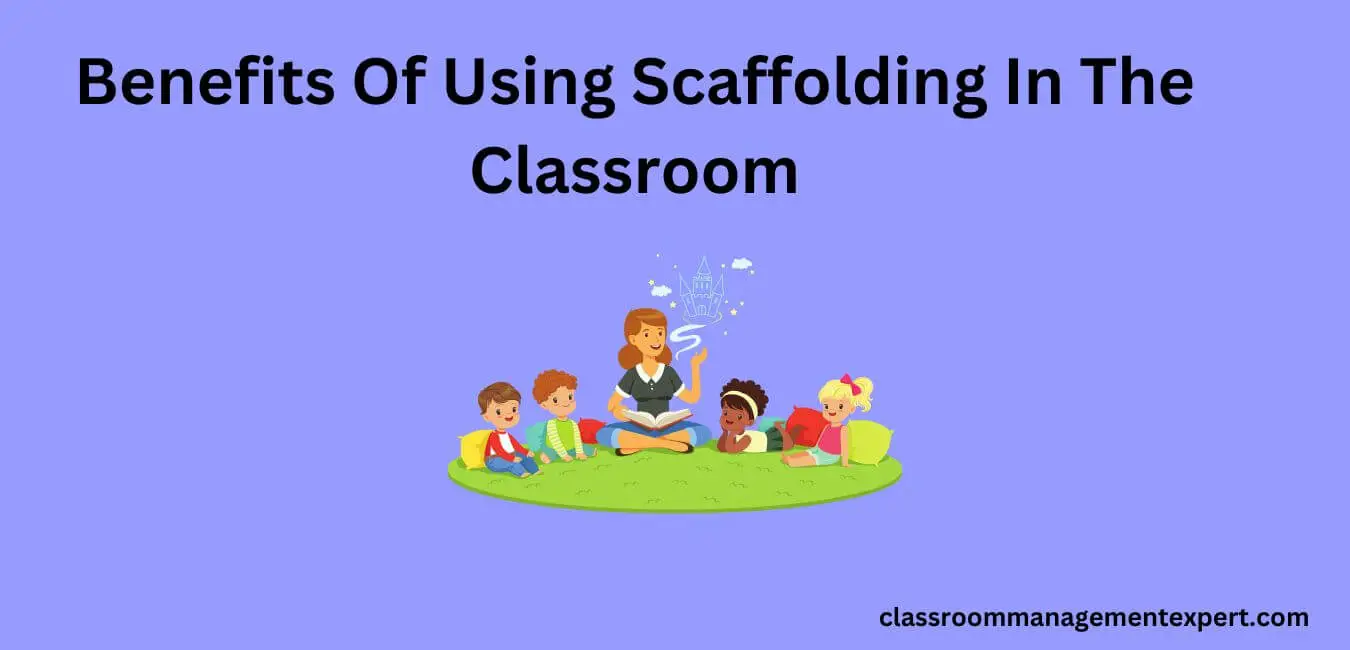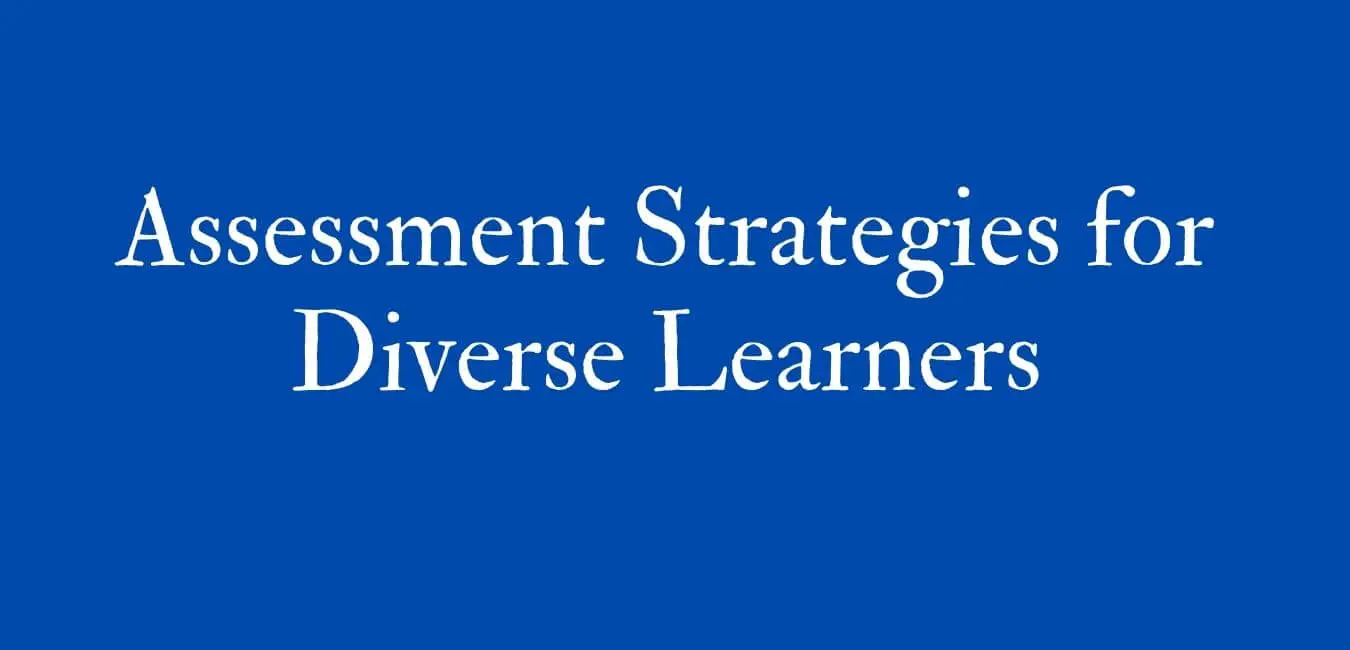In order to be an effective teacher, it is important to have empathy for and sympathy for your students. Empathy is the ability to understand and share the feelings of another, while sympathy is feeling sorry for someone.
Both are essential for creating a positive classroom environment. When teachers are able to put themselves in their students’ shoes, they can better understand their needs and be more responsive to them. Also, they can help them better connect with their students and build relationships with them. In addition, empathy and sympathy can also help teachers better understand why students are performing certain behaviors and what may be causing them distress.
In this post, I will take you through the reasons why you should be teaching with empathy and sympathy. Please, let’s get started.
The importance of empathy to teachers
Teachers need empathy to understand their students’ feelings and perspectives. The following are some of the reasons why empathy is important for teachers:
1. Empathy allows teachers to understand their students’ points of view.
In order to be successful teachers, it is important for us to be able to understand our students’ points of view. Empathy is the ability to understand and share the feelings of another person. When we are able to empathize with our students, we can better understand their perspective, why they feel the way they do, and what might be motivating their behavior. This understanding can help us develop relationships with our students that are based on trust and mutual respect. It can also help us identify and address any underlying issues that may be causing difficulty in the classroom.
2. Empathy allows teachers to build relationships with their students.
When we think about the word “empathy,” what comes to mind? For many, it is the ability to feel and share the feelings of another. Empathy is often thought of as a key component in strong relationships. It allows us to understand and connect with others on a deeper level. This is especially important when it comes to our relationships with students.
As teachers, we have the unique opportunity to build relationships with our students that go beyond just academics. We can help them learn more about themselves and develop empathy for others. This can be done by simply taking the time to get to know our students, listening to them, and understanding their perspectives.
When we are able to build relationships with our students in this way, they are more likely to trust us and open up to us.
3. Empathy allows teachers to respond effectively to students’ needs.
Teachers who feel empathy for their students are more likely to be able to respond effectively to the students’ needs. Empathy is the ability to understand and share the feelings of another person. It allows us to put ourselves in our students’ shoes and see the world from their perspective. This can help us identify with our students and understand what they are feeling. When we feel empathy for our students, we are more likely to be able to respond to their emotional needs, provide support, and build relationships of trust.
4. Empathetic teachers have strong communication and interpersonal skills.
In order to be an effective teacher, you need to be able to connect with your students. This means having empathy for them, understanding their feelings and viewpoints, and being able to communicate with them effectively. It’s this combination of skills that makes empathetic teachers so successful.
Empathy is the ability to feel what someone else is feeling. When we empathize with our students, we are putting ourselves in their shoes and trying to understand how they’re feeling. This can help us build better relationships with them since they will know that we care about them and their well-being.
Good communication is key when it comes to teaching. We need to be able to explain things clearly, get our point across effectively, and listen carefully to our students. Empathy is what will help us do that effectively.
5. Empathy can help prevent burnout.
When we feel empathy for another person, we are able to see the world from their perspective. We can understand their feelings and needs, even if we don’t agree with them. This is important in our classrooms because it allows us to prevent burnout in ourselves and our students.
Burnout is a common problem in our profession. We can become overwhelmed by the workload, the stress of meeting standards, and the challenge of helping students learn. When we feel empathy for our students, however, we are less likely to experience burnout. We can see them as individuals with unique needs and strengths, rather than just as statistics or problems to be solved.
When we understand where our students are coming from, we can better connect with them and meet their needs. We’re also more likely to be patient with them and less likely to get frustrated. This can help us avoid burnout and keep teaching fresh and exciting.
6. Empathetic teachers have compassion for their students.
When it comes to the field of education, empathy is one of the most important qualities a teacher can have. A teacher who is empathetic will be able to understand and feel for their students, which in turn will lead to compassion. Compassion is critically important in the classroom, as it allows us to connect with our students and help them through difficult times.
When we are able to put ourselves in our students’ shoes, we can better understand what they are going through. This understanding leads to compassion, as we are then able to offer support and guidance when needed. Additionally, when teachers show compassion towards their students, it helps create a positive relationship between us.
7. Empathetic teachers understand their own emotions.
We all know that empathy is a valuable quality for teachers to have. They need to be able to see things from their students’ perspectives, understand their emotions, and respond in ways that help the students learn and feel supported. However, it is also important for teachers to have empathy for themselves.
Self-empathy is the ability to understand and accept your own emotions. It can be difficult to do this at times, but it is very important. When teachers are able to empathize with themselves, they are better able to deal with their own emotions in healthy ways. This can lead to a more positive teaching experience overall.
This is because, as empathetic teachers, we understand our own emotions, which allows us to better understand and respond to the emotions of our students. Thus, we pay close attention to the emotions of others, and we are able to respond in a way that is supportive and helpful. Researchers have found that empathetic teachers are more likely to be successful in reaching and teaching students who are struggling academically or behaviorally.
The importance of sympathy for teachers
Being sympathetic as a teacher can have lots of benefits. The following are some of them:
1. It can help them better understand their students’ struggles.
One of the most important things we can do as educators is to have sympathy for our students. In order to help them, we need to be able to understand their struggles and what they are going through. Too often, some of us see our students as numbers or labels, but if we can take the time to see them as people, it can help us better understand how to help them.
Sympathy can help us develop empathy, which in turn allows us to put ourselves in our students’ shoes and see things from their perspectives. It helps us understand why they are struggling and what might be causing them difficulty. When we have sympathy for our students, it makes it easier for us to provide support and guidance. We can show compassion and understanding, which can make a huge difference in their lives.
2. It allows them to be more patient and understanding.
In the current educational system, there is an overwhelming focus on standardized testing. This focus can often lead to teachers feeling pressured to move students through material quickly, in order to ensure they are ready for the test. However, this type of pressure can lead to frustration and a lack of patience on the part of the teacher. Sympathy can help us be more patient and understanding with our students.
When we feel sympathy for our students, we understand that they are not simply trying to frustrate us or delay their learning. We realize that each student has their own individual strengths and weaknesses and that some students may need more time than others to grasp a concept. We are less likely to become frustrated with our students when we feel sympathy for them, and we are more likely to be patient and understanding.
When we experience sympathy, our perspective changes. Suddenly, we see the person or situation in a new light. We are more patient and understanding because we can put ourselves in their shoes. We can understand why they may have acted a certain way, and we are more likely to forgive them. As teachers, this is an invaluable tool. It allows us to be more patient with our students and to better understand their individual needs. We can also be more forgiving when they make mistakes. This sympathetic attitude creates a classroom atmosphere that is nurturing and supportive, which is essential for student growth and success.
3. It can help them be more effective educators.
We all know that feeling sympathetic towards someone can help us be more effective educators. We feel more connected to our students and we can better understand their perspectives and experiences. But what is it about sympathy that makes it so helpful in our work?
One reason is that sympathy helps us build relationships with our students. When we feel sympathetic towards someone, we tend to connect with them on a deeper level. We see them as individuals, rather than just students or problems to be solved. This connection allows us to form meaningful relationships with our students, which can lead to better communication and more productive learning environments.
Another reason sympathy is helpful in education is that it allows us to better understand our students’ experiences. When we feel sympathetic towards someone, we are more likely to put ourselves in their shoes.
4. It allows them to connect with their students.
Most people feel sympathy for others in some way or another. It is a natural human emotion that allows us to connect with others, especially those who are going through a difficult time. For teachers, this is an incredibly valuable tool. By sharing our own experiences, or simply letting them know that we are here for them, we can show our students that we sympathize with them and understand what they are going through. This connection can help students feel more comfortable opening up about their struggles, and it can also help us provide them with support during tough times.
5. It enables them to provide emotional support.
When we feel sympathy for someone, it enables us to provide emotional support to them. We can relate to their experiences and feel compassion for what they are going through. When we provide emotional support to our students, it helps them to feel understood and validated. This can be very helpful in times of stress or difficulty. It can also help to strengthen the bond between teacher and student.
6. It helps create a positive classroom environment.
One of the best things we can do for our students is to foster a sense of sympathy in our classroom. Sympathy allows us to understand and share in the feelings of others, which creates a more positive and supportive environment in which to learn. When we are able to put ourselves in our students’ shoes, it helps us better understand their experiences and perspectives. This can be especially helpful when working with students who have experienced trauma or difficult life circumstances.
By recognizing and understanding the emotions our students are feeling, we can provide them with the support they need to succeed. Sympathy also helps us build relationships with our students, creating a sense of community in the classroom. When students feel connected to their classmates and teachers, they are more likely to be open to learning new things. Ultimately, fostering sympathy in our classrooms helps create a positive environment where all students can thrive.
7. Sympathetic teachers can offer guidance to their students during difficult times, helping them navigate through tough situations.
It is often difficult for students to navigate through tough times and situations on their own. However, when they have a sympathetic teacher who can offer guidance, it can make all the difference in the world. Teachers who are able to show sympathy and understanding to their students can be a great resource for them, especially during difficult times.
By being understanding and supportive, teachers can help their students feel more confident and capable as they work through whatever challenges they may be facing. In addition, teachers can provide a listening ear and a shoulder to cry on when needed, which can be incredibly helpful for students. Overall, sympathetic teachers can offer much-needed guidance and support to their students during difficult times, making the experience easier for all involved.
You may want to check out more of our useful articles here.
Conclusion
When working with students, it is important for teachers to be able to empathize and sympathize with them. This allows teachers to understand their students’ feelings and perspectives and helps create a supportive environment in which students can learn. Teachers who are good at empathizing and sympathizing can also help build relationships with their students, which can increase student achievement. In addition to helping students feel understood and supported, teachers who are good at empathizing and sympathizing may also benefit from better student relations. This makes the school environment more positive for all involved.


















